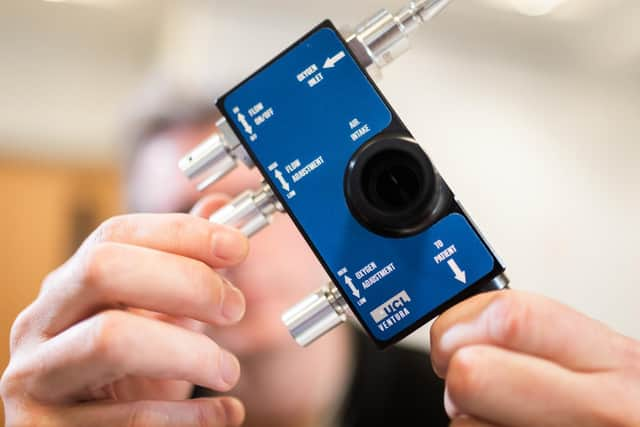Designs for coronavirus breathing aid built at Mercedes F1 team base in Brixworth made freely available
and live on Freeview channel 276
The designs of a new breathing aid built at the Mercedes Formula One team base in Brixworth have been made freely available to support the global response to coronavirus.
The continuous positive airway pressure (CPAP) device helps Covid-19 patients with lung infections to breathe more easily and has been designed in conjunction with University College London.
Advertisement
Hide AdAdvertisement
Hide AdThe entire Mercedes factory, usually used to make pistons and turbochargers, has been repurposed to produce up to 1,000 aids a day after a UK Government order of 10,000.


Mercedes-AMG High Performance Powertrains managing director Andy Cowell said: “Since the project was announced, we have received an incredible number of enquiries about the CPAP device from around the world.
"Making the design and manufacturing specifications openly available will allow companies around the world to produce these devices at speed and at scale to support the global response to Covid-19.”
CPAP devices are in short supply in UK hospitals so engineers at UCL and Mercedes worked around-the-clock to reverse engineer a device that could be manufactured rapidly by the thousands.
Advertisement
Hide AdAdvertisement
Hide AdThe breathing aid was produced within a rapid timeframe – it took fewer than 100 hours from the initial meeting to production of the first device.
The second iteration, which reduced oxygen consumption by up to 70 per cent compared to the first model, received MHRA regulatory approval last week.
Professor Rebecca Shipley, director of UCL's Institute of Healthcare Engineering, said: “These life-saving devices are relatively simple to manufacture and can be produced quickly.
"We hope that, by making the blueprints publicly available, they can be used to improve the resilience of healthcare systems preparing for the Covid-19 pandemic globally."